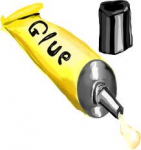Key traits of successful teams or why it’s always all about trust
Google recently undertook an internal study around the question: What are the key traits that distinguish their most successful teams?
The main finding was: A team’s dynamics are more important than the talents of the individuals who make it up. Teams that were most successful were able to establish ‘psychological safety‘. This means that people in the team had a shared belief that the team was safe for interpersonal risk taking. Accordingly, teams were most successful when their leaders and members were able to create an environment where no employees were afraid that one of their questions or suggestions would reveal them to be out of the loop.
 In other words, in teams that are most successful and effective members trust one another on a fundamental level and they are comfortable about sharing their weaknesses, mistakes, fears and behaviours. They can be completely open with one another without filters. They feel safe because they do not fear rejection or conflict. Therefore, members of successful teams feel free to come up with new ideas, challenge others, embrace change, take risks and be accountable for their actions.
In other words, in teams that are most successful and effective members trust one another on a fundamental level and they are comfortable about sharing their weaknesses, mistakes, fears and behaviours. They can be completely open with one another without filters. They feel safe because they do not fear rejection or conflict. Therefore, members of successful teams feel free to come up with new ideas, challenge others, embrace change, take risks and be accountable for their actions.
Trust has nothing to do with soft touchy feely, trust is about courage. Trust is about not being afraid of being vulnerable in the eyes of colleagues. For many of us this is quite a difficult thing because we have been conditioned to: “Be perfect!”, “Have the solution!”, “Have the better idea!”, “Be tough and have always everything under control!”. – Yet, trust is about admitting, when true, that: “I don’t know”, “I was wrong”, “I made a mistake”, “I need help”, “I am not sure”, “You are better than I am in that” and “I am sorry”.
The good news is, that it is almost never too late to help people build up trust in their organisations and between themselves. The bad news is that it takes time, but can be accelerated by team and trust building measures. Yet, trust in a team as well as in an organisation as a whole is never completed – it must be maintained over time.
 Here are some practical tips for behaviour that will help you encourage trust in your team:
Here are some practical tips for behaviour that will help you encourage trust in your team:
- Always keep your promises
- Talk straight also about difficult issues and treat all the people in the team/organisation in a respectful way
- Be transparent about your intentions
- Always speak about your colleagues as if they were present
- Apologise for your mistakes and make a restitution
- Give credit to your colleagues
- Take the tough issues head-on – deal with the difficult matters, name the taboos
- Seek feedback from your colleagues
- In your collaboration, clarify the expectations of your colleagues and clarify what results
you want to deliver to them - Hold yourself and your colleagues accountable for your/their actions
- Listen first and “put yourself in other persons’ shoes” to understand their viewpoint
- Give trust first
Teams that smartly invest in trust building will develop a strong culture which acts like a glue holding them together especially in challenging times. Moreover, it’s more fun to work in such a team as its members will not going to engage in nasty politics that waste everybody’s time and energy.
What do you think? What are your experiences? What is the trust level in your team on a scale from 1 to 10? Amongst management? Amongst staff and managers? What are you willing to do to increase the trust level in your team? – What will you do today?


